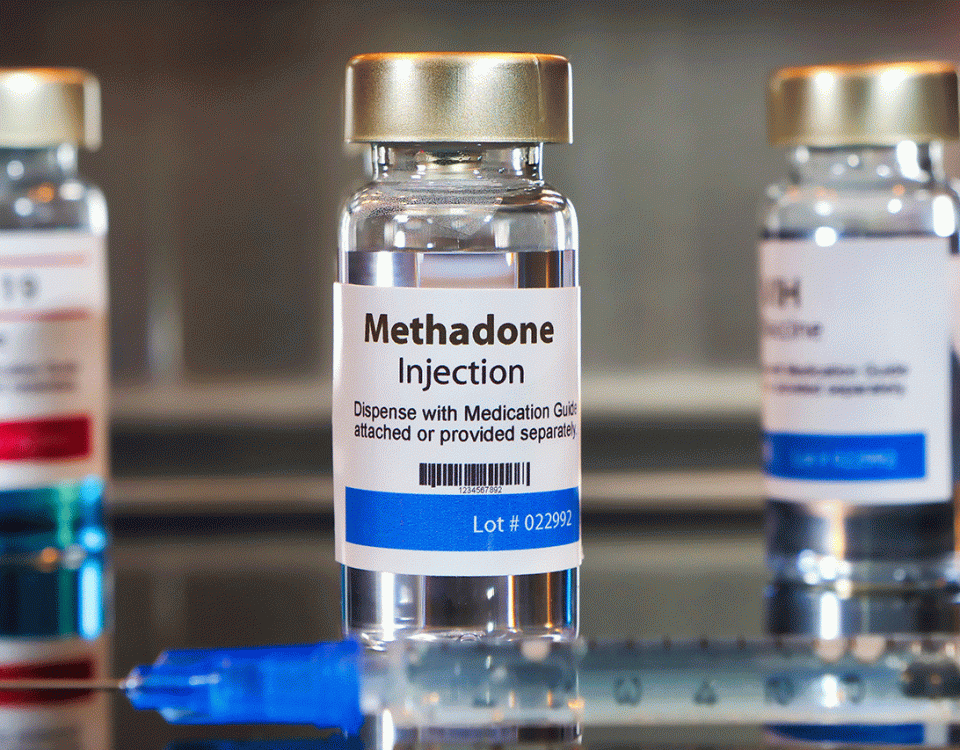Alcoholism is a hazardous form of addiction that affects millions of people nationwide.
In the 2015 National Survey on Drug Use and Health, over 15 million adults in the United States reported problems with alcohol abuse.1 Individuals who have suffered from long-term alcohol abuse will experience alcohol withdrawal delirium when they attempt to quit drinking.
At Banyan Delaware, we recommend an alcohol detox to individuals who are struggling with alcoholism and want to begin their recovery journey. Our treatment is conducted by a trained staff of professionals that pride themselves in providing safe and efficient care.
What is Alcohol Withdrawal Delirium?
Alcohol withdrawal delirium, also known as delirium tremens, is the most severe form of alcohol withdrawal. This condition causes sudden and intense side effects that can negatively impact a person’s brain and nervous system. This condition normally occurs in individuals who attempt to quit drinking after struggling with alcoholism. Alcohol withdrawal delirium is known for the severe confusion it causes and its effects on breathing and blood circulation. It’s estimated that half of the people who develop an alcohol addiction will experience alcohol delirium symptoms.2
Symptoms of Alcohol Withdrawal Delirium
Alcohol withdrawal delirium symptoms usually occur between three and seven days after the individual has had their last drink. Some of the symptoms include:
- Anxiety
- Chest pains
- Confusion
- Delusions
- Mood swings
- Fatigue
- Fever
- Hallucinations
- Breathing problems
- Increased heart rate
- Involuntary muscle movement
- Stomach pain
- Delirium
As a rehab center in Delaware, we know that alcohol withdrawal delirium can be caused by alcoholism alongside other incidents. Cutting off alcohol too suddenly, not eating enough, and even experiencing a head injury can cause this condition and put someone in the emergency room. Alcohol attacks the neurotransmitters in your brain, causing a relaxed feeling. If alcohol intake is drastically reduced in a short period of time, the neurotransmitters in your brain will continue to work just as hard. Your body may then struggle to readjust to the sudden change, causing alcohol delirium.
Treatment for Alcohol Withdrawal Delirium
The best way to manage alcohol abuse and alcohol delirium is with a detox followed by addiction treatment. Many people who attempt to get through alcohol delirium on their own end up suffering from other physical ailments. Because the brain is greatly affected by their alcohol abuse and withdrawal, a lack of proper treatment can be dangerous.
At Banyan Treatment Centers Delaware, we work hard to help people with different types of substance abuse disorders reach sobriety. If you or someone you know is battling an addiction, call our team today at 888-966-9413 to find out about our treatment options.
Sources & References:
Alcoholism is a hazardous form of addiction that affects millions of people nationwide. In the 2015 National Survey on Drug Use and Health, over 15 million adults in the United States reported problems with alcohol abuse.1 Individuals who have suffered from long-term alcohol abuse will experience alcohol withdrawal delirium when they attempt to quit drinking.
At Banyan Delaware, we recommend an alcohol detox to individuals who are struggling with alcoholism and want to begin their recovery journey. Our treatment is conducted by a trained staff of professionals that pride themselves in providing safe and efficient care.
What is Alcohol Withdrawal Delirium?
Alcohol withdrawal delirium, also known as delirium tremens, is the most severe form of alcohol withdrawal. This condition causes sudden and intense side effects that can negatively impact a person’s brain and nervous system. This condition normally occurs in individuals who attempt to quit drinking after struggling with alcoholism. Alcohol withdrawal delirium is known for the severe confusion it causes and its effects on breathing and blood circulation. It’s estimated that half of the people who develop an alcohol addiction will experience alcohol delirium symptoms.2
Symptoms of Alcohol Withdrawal Delirium
Alcohol withdrawal delirium symptoms usually occur between three and seven days after the individual has had their last drink. Some of the symptoms include:
- Anxiety
- Chest pains
- Confusion
- Delusions
- Mood swings
- Fatigue
- Fever
- Hallucinations
- Breathing problems
- Increased heart rate
- Involuntary muscle movement
- Stomach pain
- Delirium
As a rehab center in Delaware, we know that alcohol withdrawal delirium can be caused by alcoholism alongside other incidents. Cutting off alcohol too suddenly, not eating enough, and even experiencing a head injury can cause this condition and put someone in the emergency room. Alcohol attacks the neurotransmitters in your brain, causing a relaxed feeling. If alcohol intake is drastically reduced in a short period of time, the neurotransmitters in your brain will continue to work just as hard. Your body may then struggle to readjust to the sudden change, causing alcohol delirium.
Treatment for Alcohol Withdrawal Delirium
The best way to manage alcohol abuse and alcohol delirium is with a detox followed by addiction treatment. Many people who attempt to get through alcohol delirium on their own end up suffering from other physical ailments. Because the brain is greatly affected by their alcohol abuse and withdrawal, a lack of proper treatment can be dangerous.
At Banyan Treatment Centers Delaware, we work hard to help people with different types of substance abuse disorders reach sobriety. If you or someone you know is battling an addiction, call our team today at 888-280-4763 to find out about our treatment options.
Sources:









